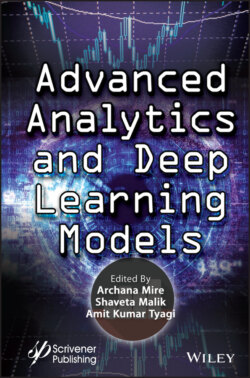Читать книгу Advanced Analytics and Deep Learning Models - Группа авторов - Страница 13
1
Artificial Intelligence in Language Learning: Practices and Prospects
ОглавлениеKhushboo Kuddus
School of Humanities (English), KIIT Deemed to be University, Bhubaneswar, Odisha, India
Abstract
Fourth Industrial Revolution which features rapid expansion of technology and digital application is influencing almost all spheres of our lives. Artificial Intelligence (AI) has made an impact on the way we live and work, that is, from floor cleaning to instructing Alexa. AI has a great potential in the field of education. AI in education is an emerging field in educational technology. It has an enormous potential of providing digitalized and completely personalized learning to each learner. However, the idea of using AI in education is actually intimidating educators because there is a lot of misconception and misunderstanding regarding the use of AI in education. It is mainly because the educators are unaware of the pedagogical implication of it in education in general and language learning in particular. It is also because of the lack of critical reviews of the pedagogical implications and new approaches in adopting AI in education. Therefore, the present study attempts to explore how AI can be used to enhance language learning experiences. It discusses the tools that can be used to teach English effectively. It further aims to explain how AI can be used to foster learner’s autonomy. It essentially envisions AI embedded learning in classrooms to enhance English language teaching learning experience and assist the teachers teach their lessons effectively. The findings bring into light some practical and innovative ways, AI can be integrated in ELT classroom to enhance the language teaching learning experience. It focuses on teaching pronunciation and increasing fluency by mimicking the sound pattern and using speech recognition and speech editing features. Moreover, it also highlights the personal approach to language learning by using Chatbot which provides text-to-speech and speech-to-text conversion, using technology to transcribe speech in order to check the pronunciation, translate speech, and practicing conversation by using voice command like Google Assistant. Hence, the paper examines the potential application of AI in education and language learning in particular. Further, it explores the possibilities of implication of AI in classrooms adopting new learning approaches and pedagogical modifications.
Keywords: Artificial intelligence, intelligent computer-assisted language learning, natural language processing, networked learning, English language teaching, pedagogies, digital tools
